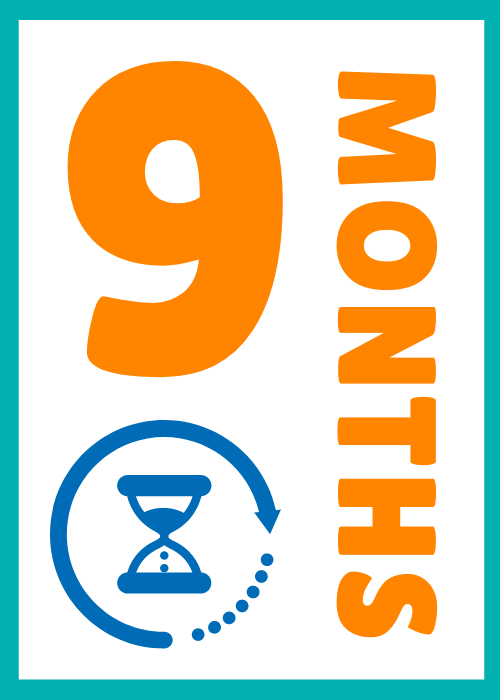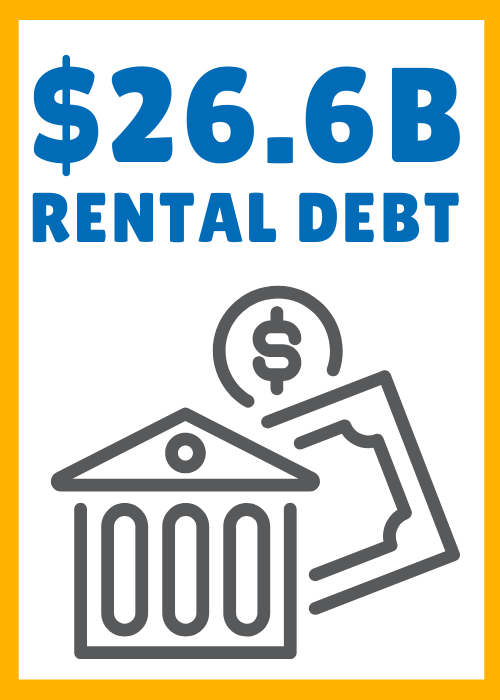A Renewed Call to Join NAA's Eviction Moratorium Lawsuit
The National Apartment Association (NAA) has taken legal action against the unconstitutional government overreach of the CDC's eviction moratorium, and following a significant legal victory, has issued a renewed call for additional plaintiffs to join the lawsuit to recover damages housing providers suffered under the CDC’s eviction moratorium.
Click below to review the qualifications and join the lawsuit!
During the past few years, NAA has diligently worked to recover damages that housing providers suffered under the US Centers for Disease Control and Prevention’s (CDC) protracted eviction moratorium, which financially damaged rental housing owners and violated rights guaranteed by the US Constitution.
On August 7, 2024, the U.S. Court of Appeals for the Federal Circuit decided 2-1 that the case move can move forward against the federal government. Review our filed complaint and read an in-depth analysis of the latest ruling.
Although NAA's efforts have proved successful with this recent decision, there is still an opportunity for property owners to join the lawsuit and recover business losses attributed to the unlawful CDC eviction moratorium. There is a five-year statute of limitations for possible plaintiffs to bring their claim and this lawsuit is open to all rental housing owners operating in a state or locality under the federal moratorium. Check eligibility below.
 |
 |
|
|
|
Additional Information
Duration
Litigation is a lengthy process. No one can predict the length of any specific litigation, although most complex cases take significantly more than a year to complete. Among the factors that will influence this case are the number of plaintiffs, the nature of the legal rulings, the number of appeals from the trial court rulings, if any, and the complexity of the damage calculations.
Trial
Litigation is unpredictable, it is impossible to foresee any specific outcome. The most recent decision was in favor of the plaintiffs; however, there is still a significant journey ahead before any damages may be awarded. Each plaintiff will be required to prove the amount of damages it suffered as a result of the moratorium and may need to prove other facts.
Cost
There are expenses associated with lawsuits that are separate from the time and work of the lawyers involved. These expenses can include court costs and filing fees, court reporters, expenses associated with third-party vendors, and a variety of other costs. An initial cost deposit of $1,000 for each plaintiff will be used toward any general litigation expenses. Additional costs may be assessed on a pro rata basis. At the conclusion of the lawsuit, any unspent funds will be returned, again on a pro rata basis. Another potential cost associated with the lawsuit will be for the retention of one or more expert witnesses. Each plaintiff will bear the cost of any expert work associated with proving its case and damages. (Alternatively, the expert witness fees may be assessed to all plaintiffs on a pro rata basis.) It is impossible to estimate the amount of those expenses at this time.
Risks
There is a risk that the case will be unsuccessful and that you will have diverted valuable employee resources (particularly in the area of damage calculation) without reward. There is a risk of spending money on litigation expenses without reward. Companies should also be aware that as a result of the contingent fee, any recovery they ultimately achieve will be reduced by 20% paid to the attorneys.
Eligibility
Any rental property owner who was damaged by the CDC eviction moratorium can join the case. However, if you have properties in states or other locales that enacted more stringent eviction restrictions than those imposed by the CDC, you will not be able to participate in this lawsuit with respect to those properties. These states include but are not limited to:
- California
- Delaware
- Washington, D.C.
- Hawaii
- Illinois
- Maryland
- Massachusetts
- Minnesota
- New Jersey
- New Mexico
- New York
- Oregon
- Rhode Island
- Vermont
- Washington
Recovery
There will be no recovery unless the court finds that the government is legally responsible for providing compensation resulting from the moratorium. If there is such a finding, how much any plaintiff can recover will depend upon the amount of the financial loss suffered and a variety of other factors, including whether the loss was offset by funds received from other sources. In some instances, some rental assistance programs have required recipients to waive any claims they may have to collect unpaid funds. The other possibility is that the Justice Department may settle the claims, since most litigation ends by settlement. No settlement discussions have occurred to date.
NAA's Efforts Against the Eviction Moratorium
Since the onset of the pandemic, NAA has aggressively advocated to protect the interests of the rental housing industry:
- NAA called out the dangers and short-sightedness of eviction moratoria and asked for its sunset to both the 116th and 117th Congresses, in meetings with both White House administrations and across all levels of media.
- NAA is among the first to take legal action challenging the CDC’s authority last September and continues to support ongoing legal challenges.
- With the meter on rent debt still running, political will waning and Congress moving past COVID-relief measures, NAA is putting up the greatest fight yet and asking the courts for two things – fair compensation for damages suffered under the unlawful CDC order and an assurance that the federal government can never do this again.
For administrative questions, please contact Judy Murphy. For additional questions and legal inquiries, contact John McDermott, NAA Counsel.